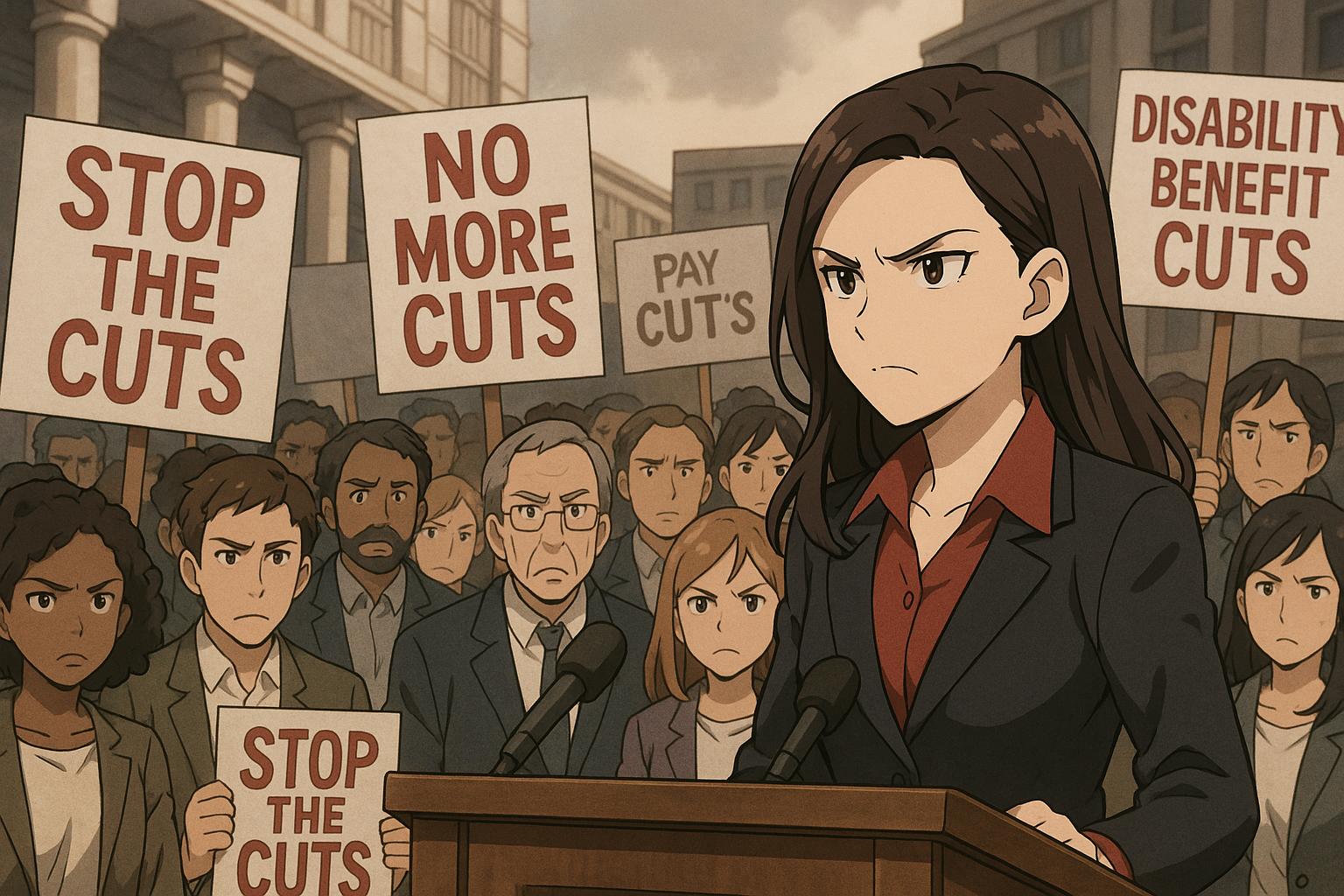Rachel Reeves, the Chancellor of the Exchequer, finds herself in a precarious position as discontent among her constituents escalates over the government’s proposed cuts to disability benefits. The recent unanimous motion passed by the Leeds West and Pudsey Constituency Labour Party, urging Reeves to reverse her stance on reducing Personal Independence Payments (PIP) and Universal Credit, starkly highlights the disconnect between Labour leadership and its local representatives regarding welfare reform.
The proposed cuts are set to wreak havoc on the lives of millions. An analysis from the Department for Work and Pensions forecasts severe financial ramifications, with over three million households potentially impacted—370,000 individuals facing the loss of their PIP support. This alarming prospect raises the spectre of an additional 250,000 people, including 50,000 children, being thrust into relative poverty by 2029/30. Families affected by these changes stand to lose an average of £1,720 annually, with some facing even harsher losses of around £4,500.
The cuts have ignited fierce backlash not just from local constituents but within the Labour ranks themselves, who are labeling these measures as “devastating” and “unacceptable.” Prominent Labour MPs, including Debbie Abrahams and Neil Duncan-Jordan, are vocally opposing this callous approach, highlighting the dire consequences for vulnerable communities—a clear indication that the government is miscalculating its priorities in pursuit of fiscal balance.
Those in Leeds are justifiably alarmed. Disability advocates warn that reductions in PIP will drastically compromise individuals' abilities to afford basic necessities. Local resident Flick Williams has voiced her distress over the difficulty of securing essential equipment for her disability, reflecting grim realities for many in this climate of rising living costs, which have already decimated household budgets nationwide.
The outcry over these cuts has not only stirred local anger but has also sparked intense debate within the Labour Party itself. Reports of growing discontent signal significant fractures in their party’s approach to welfare. While a recent YouGov poll suggests that 68% of the public supports welfare reform, the evident dissatisfaction among constituency members raises disturbing questions about the party's moral compass.
Despite the growing chorus of dissent, Chancellor Reeves remains steadfast in her defense of the government's policy decisions, asserting a commitment to fostering employment opportunities. However, against the backdrop of dour economic forecasts from the Office for Budget Responsibility downgrading growth projections to a meager 1% for this year, the viability of these cuts becomes increasingly suspect.
As internal strife escalates, the Labour Party stands on the precipice of significant challenges. The struggle between fiscal restraint and social equity is poised to become a defining battleground, testing the party's unity as it attempts to navigate the complexities of a just welfare system. During this tumultuous period, constituents and party leaders alike will be scrutinizing whether the government can effectively align its fiscal strategies with the urgent needs of those it advocates to serve.
Source: Noah Wire Services
